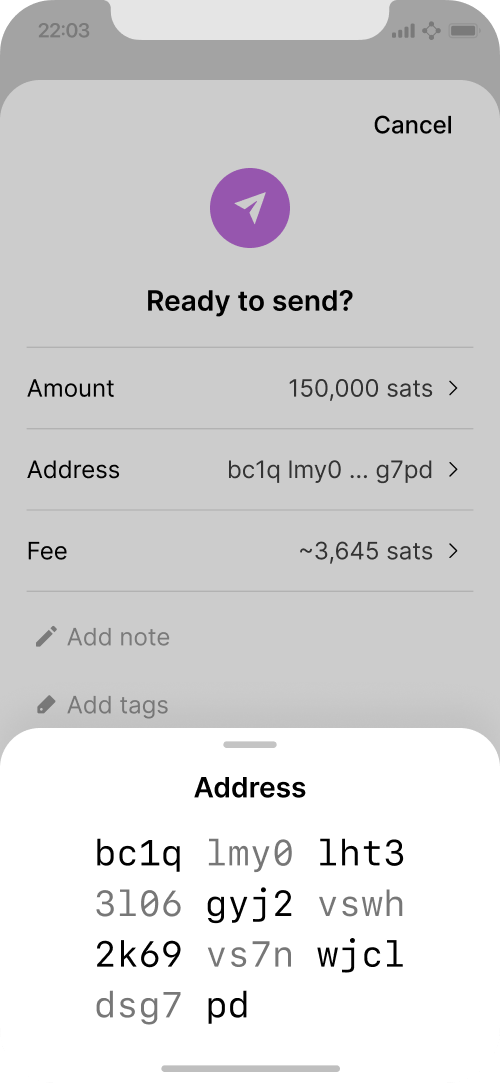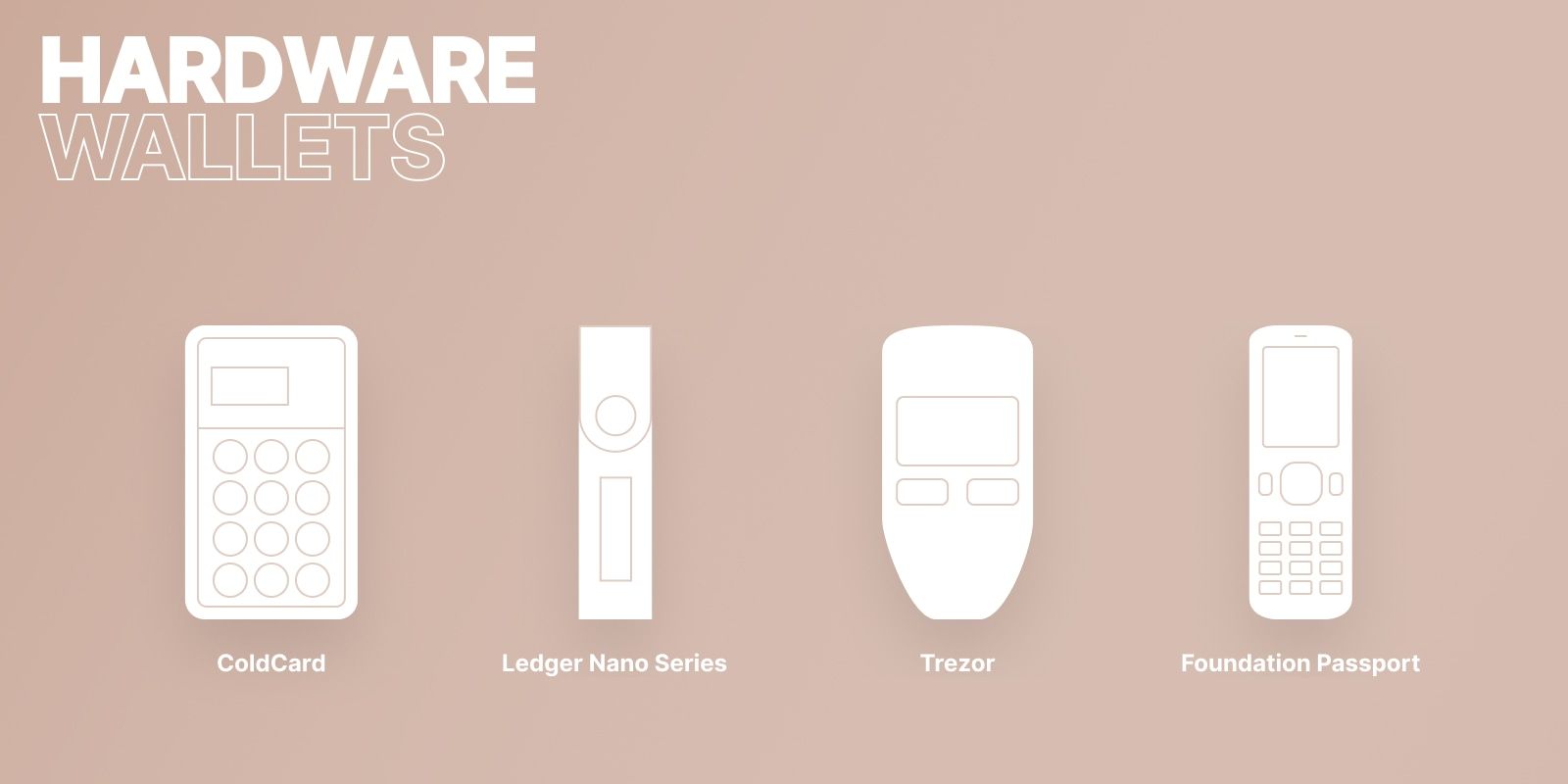Bitcoin Wallet 101: A Comprehensive Guide for Newbies
Whether you're new to Bitcoin or want to brush up on the basics, 'Bitcoin Wallet 101: A Comprehensive Guide for Newbies' is your starting point. Discover the wallet's key role in the Bitcoin ecosystem.

Welcome to the exciting world of Bitcoin, a decentralized digital currency that has been making headlines since its inception in 2009.
At the heart of the Bitcoin system lies an ingenious piece of technology that keeps your Bitcoin safe and allows you to make transactions, known as the Bitcoin wallet.
If you're new to Bitcoin or just starting to explore its many facets, understanding the role of the Bitcoin wallet in the ecosystem is fundamental.
So, what is a Bitcoin wallet?
In a physical world, a wallet is a place where we keep our cash and cards. Just like your traditional wallet, a Bitcoin wallet's job is to store something valuable, but instead of physical cash, it securely stores the digital codes, or 'keys,' that grant you ownership over your Bitcoin assets.
The Pivotal Role of the Wallet in Bitcoin Technology
A Bitcoin wallet plays an integral role in the Bitcoin ecosystem. It acts as a digital interface that interacts with the Bitcoin blockchain, enabling users to send, receive, and manage their Bitcoin.
Bitcoin wallet is akin to your own personal gateway to the Bitcoin network, and without it, there would be no means to own or transact Bitcoins.
The wallet is more than just a storage unit; it's also a transaction facilitator and a critical security mechanism. When you make a transaction, your wallet generates a unique digital signature by combining your private key and the transaction details. This signature authorizes the transaction and proves you're the rightful owner of the Bitcoins being sent, all without revealing your precious private key.
In other words, the wallet helps facilitate transactions while maintaining the security and integrity of your Bitcoin.
In essence, the Bitcoin wallet is the glue that holds the Bitcoin system together, providing users with a way to store their Bitcoins, a mechanism to transact with other users, and, most importantly, a method to ensure that their valuable Bitcoin remains secure.
With such a pivotal role, it's not hard to see why understanding the Bitcoin wallet is a crucial step on your journey into the world of Bitcoin. Stay tuned as we dive deeper into the wallet, breaking down its complex structure into digestible, easy-to-understand components.
Why Is It Crucial to Understand the Bitcoin Wallet in the Context of Bitcoin?
If you're venturing into the world of Bitcoin, your wallet will be your closest ally. It's the tool you'll use to interact with your digital assets, so understanding how it functions is paramount for anyone seeking to navigate the Bitcoin ecosystem effectively.
Understanding your Bitcoin wallet is not just about knowing how to send or receive Bitcoins, but it's also about recognizing the importance of security in managing digital assets.
In the Bitcoin world, if your wallet's private keys are lost, your Bitcoin is effectively gone. If they fall into the wrong hands, your Bitcoin could be stolen.
In essence, understanding your wallet is about having the knowledge to secure your digital fortune and the power to manage it effectively.
Moreover, comprehension of Bitcoin wallets offers insights into the broader principles of Bitcoin, such as decentralization and personal responsibility for one's assets.
By being your own bank through a Bitcoin wallet, you embody these principles, which are foundational to the Bitcoin philosophy.
Breaking It Down: Your Simple Guide to Understanding the Bitcoin Wallet
A Bitcoin wallet is a software application that allows you to interact with the Bitcoin blockchain. It stores two cryptographic keys: a public key, which is like a digital address to receive funds, and a private key, which is used to sign transactions and access Bitcoins associated with your public key.
However, your wallet doesn't 'store' your Bitcoin in the way a physical wallet would store coins. Bitcoins remain on the blockchain! It's confusing, right? Don't worry! We will explain more below.
What the wallet holds are the private keys that prove your ownership of Bitcoins on the blockchain and allow you to transact with them.
What makes the wallet truly unique is that it empowers individuals with full control over their digital assets. No bank or government can seize your Bitcoin as long as you keep your private keys secure.
This is a significant shift from traditional finance, where intermediaries typically have some level of control over your funds.
The Bitcoin wallet is more than just a tool; it's your gateway to the world of digital currency, a world that offers unprecedented financial freedom, privacy, and control. By understanding your Bitcoin wallet, you're taking a crucial step toward harnessing the power of Bitcoin.
Behind the Scenes: Wallet in Layman's Terms
The Building Blocks of a Wallet
To demystify the concept of a Bitcoin wallet, let's break it down into three primary components:
1. Public Key: Think of this as your email address. You can share it with others who can then use it to send you Bitcoins, just like people can send emails to your email address.
2. Private Key: This is like the password to your email account. It gives you access to the Bitcoins sent to your public key. But unlike an email password, if you lose your private key, you can't reset it. And if someone else gets ahold of it, they can access and spend your Bitcoins. Never share your private key with anyone you don't fully trust! Ever!!!

3. Address: This is a shorter form of your public key, generated through a specific algorithm. It's like a username that you share with others to receive Bitcoins.

The Genesis of the Bitcoin Wallet
The Bitcoin wallet is integral to the concept of Bitcoin. Introduced along with Bitcoin by the pseudonymous Satoshi Nakamoto in 2009, wallets were the answer to the question: how can people store and use this new digital currency?
Traditional banking wasn't an option because Bitcoin's entire premise is decentralization and freedom from intermediaries. A new, secure method was necessary, one that gave users total control over their assets.
The answer was the Bitcoin wallet - a tool to store cryptographic keys that give you access to your Bitcoins on the decentralized ledger, the blockchain.
How a Bitcoin Wallet Works in a Typical Scenario
Let's say Alice wants to send some Bitcoin to Bob. Here's how it works:
- Bob shares his public key (or the shorter 'address') with Alice.
- Alice uses her Bitcoin wallet to initiate a transaction. She inputs Bob's address and the amount of Bitcoin to send.
- Alice's wallet uses her private key to 'sign' the transaction, validating that she is the rightful owner of the Bitcoin she wants to send.
- The transaction is broadcasted to the Bitcoin network to be added to the blockchain.
- Once the transaction is confirmed, Bob's wallet balance increases. Behind the scenes, his wallet has detected a transaction on the blockchain that corresponds to his public key.
In this scenario, Alice and Bob's wallets have facilitated a secure, peer-to-peer transaction without any need for a bank or payment processor.
This is the power and relevance of Bitcoin wallets - they are the backbone of the decentralized finance revolution brought about by Bitcoin.
Variations on a Theme: Different Types of Bitcoin Wallets
Bitcoin wallets come in a variety of formats, each designed to meet different needs and offer varying levels of security and convenience. Here are a few you should know about:
1. Hot Wallets: These are wallets connected to the internet. They include online wallets, mobile wallets, and desktop wallets. While they offer convenience, they're vulnerable to online threats.
2. Cold Wallets: These are offline wallets and are more secure than hot wallets. Examples include hardware wallets and paper wallets.
3. Online Wallets: Web-based wallets that can be accessed from anywhere with an internet connection.
4. Mobile Wallets: Wallets installed on a smartphone, handy for everyday transactions and 'on-the-go' accessibility.
5. Desktop Wallets: Software installed on a personal computer. They offer a good balance between security and convenience.
6. Hardware Wallets: Physical devices that store your private keys offline. They offer robust security and are good for storing large amounts of Bitcoin.

7. Paper Wallets: A piece of paper containing printed public and private keys. It's a form of cold storage and is secure unless the paper is lost or damaged.
Seeing Is Believing: Real-Life Applications and Scenarios of Wallet
Consider Alice again. She gets her paycheck in Bitcoin to her online wallet. For daily spending, she uses her mobile wallet at physical shops and online stores that accept Bitcoin. She also has a hardware wallet where she transfers the majority of her Bitcoins for safekeeping.
When she wants to sell some Bitcoin, she transfers it from her hardware wallet to her online wallet, then sends it to the Bitcoin exchange. Her understanding of wallets allows her to manage her Bitcoin securely and effectively, using different types of wallets for different purposes.
Wallet and You: The Impact on Your Life and Society
As more people adopt Bitcoin, understanding wallet technology becomes increasingly crucial. It's not just about handling a new type of currency; it's about a paradigm shift in the way we think about money.
Personal Finance
Knowledge of Bitcoin wallets can empower you. Instead of relying on banks or other institutions, you gain control over your money. You decide when, where, and how to use your Bitcoin.
Society and Economy
As Bitcoin gains wider acceptance, economies may see more peer-to-peer transactions and less reliance on traditional banking systems.
A better understanding of wallet technology can facilitate this transition, promoting a more open and decentralized financial system.
This could potentially lead to more financial inclusion, especially in areas where access to traditional banking services is limited.
Facing the Music: Addressing Common Misconceptions and Fears about Bitcoin Wallet
Despite their growing importance, many misconceptions about Bitcoin wallets persist. Let's debunk some of these myths:
1. Misconception: Bitcoin wallets store Bitcoins: Wallets don't actually store Bitcoins. They hold your private keys, which allow you to access and spend the Bitcoins associated with your public address on the blockchain.
2. Fear: Losing a wallet means losing all your Bitcoin: If you lose your physical wallet (like a hardware wallet), you haven't necessarily lost your Bitcoin. You can recover your Bitcoin if you have your recovery phrase or backup. This is why it's crucial to secure and backup your wallet.
3. Fear: Bitcoin wallets are not secure: Wallets can be incredibly secure if used correctly. Cold wallets (offline wallets) provide a high level of security. Even online wallets can be secure if you use strong passwords, two-factor authentication, and other security measures.
Understanding these realities about wallets helps alleviate common fears and misconceptions, enabling you to use Bitcoin with confidence and safety.
The Road Ahead: Navigating Wallet with Confidence
Understanding Bitcoin wallets is a vital first step in becoming part of the Bitcoin revolution. Here's a quick recap of what you've learned today:
- A Bitcoin wallet is a digital tool that lets you interact with the Bitcoin blockchain to send, receive, and manage your Bitcoin.
- Wallets come in various forms, each with its unique features and levels of security. These include online wallets, mobile wallets, desktop wallets, hardware wallets, and paper wallets.
- Wallets don't actually store Bitcoin; they store your public and private keys, which you use to sign transactions and access your Bitcoin.
- Your knowledge of wallets can influence your personal finance decisions and contribute to a more open and decentralized financial system.
To deepen your understanding of Bitcoin wallets, we recommend the following resources:
- Coinbase's comprehensive guide on Bitcoin wallets
- River Financial's insightful article on how Bitcoin wallets function
Ready to get started? Here's how you can safely and effectively engage with Bitcoin wallets:
- Choose Your Wallet: Start by selecting a wallet that suits your needs. If you're a beginner, you might want to start with an online wallet or mobile wallet for ease of use.
- Secure Your Wallet: Take every measure to secure your wallet. Use strong, unique passwords, and enable two-factor authentication if possible. If you're using a hardware wallet, keep it in a safe place.
- Backup Your Wallet: Always keep a backup of your wallet. This typically involves writing down a series of words (recovery phrase) and storing them securely. This will help you recover your wallet if you lose access to your device.
- Start Small: If you're new to Bitcoin, start by sending and receiving small amounts to familiarize yourself with the process.
By understanding Bitcoin wallets and practicing good security habits, you're well on your way to becoming a confident participant in the world of Bitcoin. Congratulations on taking the first steps on this exciting journey!
